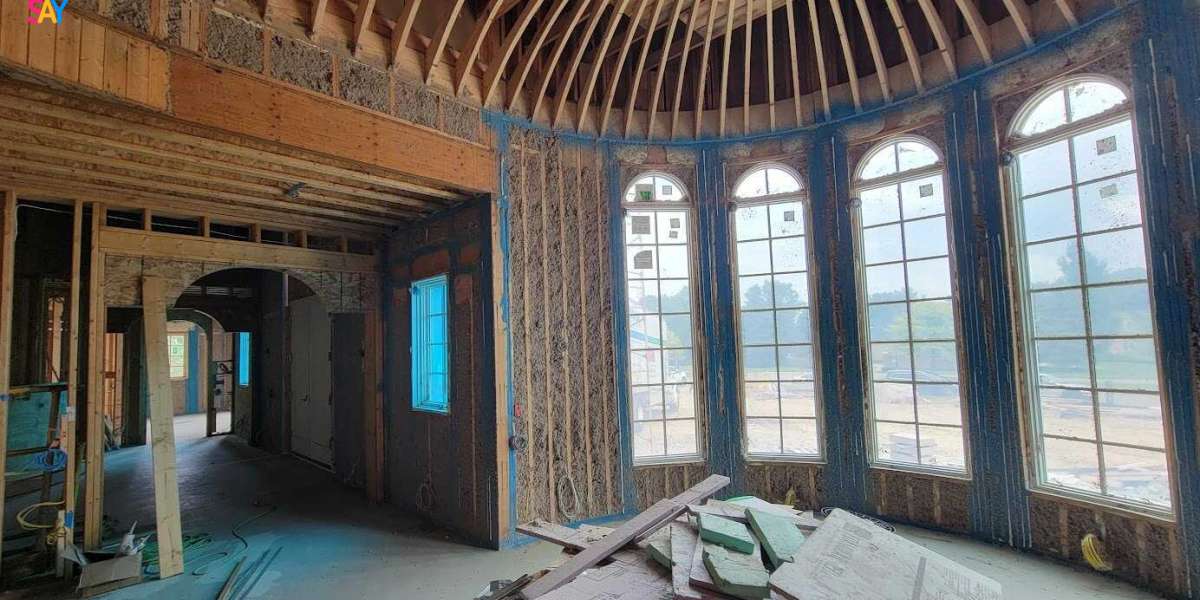Throughout the colder months in Michigan, snow falls heavily, accompanied by icy winds. These harsh conditions pose a significant challenge to maintaining an energy-efficient and comfortable home. For homeowners in Capac, Michigan, air sealing becomes an absolute necessity to preserve indoor warmth and keep energy bills manageable. This guide explores the importance of air sealing, its benefits, and why it is a crucial step in preparing your home for Michigan winters.
What is Air Sealing?
Air sealing involves closing all gaps, cracks, and vents that allow unwanted airflow in and out of the living space. These gaps are common in areas such as:
Common Areas of Air Leaks
- Windows and Doors: Gaps around frames and seals.
- Attics: Uninsulated or poorly sealed spaces.
- Basements: Subflooring and areas near foundation walls.
- Wall Openings: Where pipes or electrical appliances enter and exit the house.
By addressing these leaks, air sealing helps maintain a stable and warm indoor environment during winter.
The Effect of Air Leaks on Michigan Homes
Heat Loss and Energy Waste
Without proper sealing, warm air escapes through cracks and gaps, forcing heating systems to work harder. This not only increases energy bills but also shortens the lifespan of HVAC systems.
Drafts and Uneven Temperatures
Air leaks create drafts that make certain rooms feel colder than others. This temperature inconsistency reduces overall comfort, especially during Michigan's freezing winters.
Moisture Problems
Cold air entering through leaks can lead to condensation and moisture buildup. Over time, this may result in mold growth and structural damage, particularly in basements and attics.
Benefits of Air Sealing
Enhanced Energy Efficiency
Air sealing minimizes heat loss, reducing the energy required to maintain a comfortable indoor temperature. This translates to significant savings on energy bills.
Improved Comfort
Eliminating drafts and maintaining consistent indoor temperatures ensures a cozier home environment throughout the winter.
Better Indoor Air Quality
By sealing gaps and cracks, contaminants, allergens, and outdoor odors are prevented from entering your home. This improves air quality, especially during winter when doors and windows are often closed.
Prolonged HVAC System Lifespan
Air sealing reduces the strain on heating systems, extending their lifespan and lowering the need for frequent repairs or replacements.
Environmental Benefits
Lowering energy consumption through air sealing reduces your home’s carbon footprint, making it an environmentally friendly choice.
Air Sealing and Michigan Winters
Unique Challenges of Michigan Winters
Michigan winters bring extreme cold, heavy snow, and strong winds. These conditions make air sealing a critical component for keeping homes warm and energy-efficient.
Snow and Wind Penetration
Snow and wind exacerbate air leaks by forcing cold air into the home through even the smallest gaps. Proper air sealing acts as a barrier, keeping the cold out and the warmth in.
Rising Energy Costs
With energy prices on the rise, air sealing provides an effective way to cut heating expenses. It ensures that the energy you pay for stays inside your home.
How is Air Sealing Done?
Air sealing involves a systematic approach to identifying and sealing leaks throughout the home. The process typically includes the following steps:
1. Home Energy Audit
A home energy audit identifies areas where air leaks occur. Tools such as blower doors and infrared cameras help pinpoint leaks that are invisible to the naked eye.
2. Sealing Gaps and Cracks
Once leaks are identified, they are sealed using materials like caulk, spray foam, or weatherstripping. Each area is addressed based on its specific requirements.
3. Adding Insulation
In addition to sealing, installing insulation in key areas like attics and basements further enhances energy efficiency.
4. Testing and Verification
After sealing, follow-up tests are conducted to ensure all leaks are addressed and the home’s energy efficiency has improved.
The Role of Air Sealing in a Comprehensive Energy Strategy
Air sealing is a fundamental part of a broader energy efficiency strategy. When combined with proper insulation and an efficient HVAC system, it creates a well-sealed and comfortable home environment.
Air Sealing for Homes in Capac, Michigan
For residents of Capac, Michigan, air sealing provides tailored solutions for local weather conditions. Professional services ensure that your home is equipped to handle the elements and remain energy-efficient.
Frequently Asked Questions
What is the Difference Between Air Sealing and Insulation?
Air sealing focuses on closing gaps and cracks to prevent airflow, while insulation reduces heat transfer through walls, floors, and ceilings. Both are essential for energy efficiency.
How Much Can I Save with Air Sealing?
Air sealing can reduce energy bills by up to 20%, depending on the extent of the leaks and the efficiency of your heating system.
Is Air Sealing a DIY Project?
While minor leaks can be addressed with DIY methods, professional air sealing ensures thorough coverage and long-lasting results.
Does Air Sealing Help in Summer?
Yes, air sealing prevents cool air from escaping during summer, making it beneficial year-round.
How Long Does Air Sealing Last?
When done professionally, air sealing can last for decades with minimal maintenance.
Conclusion
Air sealing is a vital step for Michigan homeowners looking to improve energy efficiency, enhance comfort, and reduce heating costs during harsh winters. By addressing air leaks and creating a well-sealed environment, homeowners can enjoy the benefits of a warmer, healthier, and more cost-effective home.
To learn more about air sealing and how it can benefit your home in Capac, Michigan, contact Insulation Services of Michigan Inc. at (810) 267-4121 today. Take the first step toward a more energy-efficient and comfortable winter!




